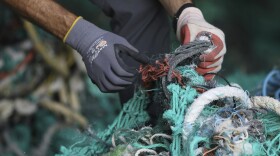Community health centers are changing the way they communicate with patients to combat misinformation and vaccine hesitation.
Waianae Coast Comprehensive Health Center created a song contest where residents could submit their pieces, and win up to $100.
The goal of the COVID-19 lyric contest was to engage the community, explained Jacob Schafer, the Director of Infection Control at the health center.
“We had really a number of great entries of original song that we shared, really trying to rope in the community and that vocal institutional knowledge in helping develop culturally appropriate messaging,” he said.
Another cultural message Waianae Coast Comprehensive Center used, was urging people to not participate in cockfights---also known as “chicken derbies.”
“We have a lot of chicken derbies, and we talked about chicken derbies and how they can be super spreader events,” Schafer said.
“Things that may not be applicable to other parts of the island, but really relevant to local culture in Waianae.”
He noticed that state guidance about gatherings of only five people did not work for many of the health center’s patients, where a single household could mean 20 people.
At Malama I Ke Ola Health Center on Maui, Chief Medical Officer John Vaz thought it was important for patients to get information from people they trust.
That’s why the facility’s poster campaign featured large photos of its own employees.
“We started an internal vaccine champion campaign. So we had a lot of the staff come in for a picture. And we leveraged the concept of lau lima, you know, just like many hands together, creating protection around the community,” Vaz said.
“Each staff member of the administrative or the leadership team, and clinical team, kind of giving their quote as to why. Some of those were very poignant, especially with staff members who had lost family members to COVID-19.”
Rupali Limaye, a vaccination expert at Johns Hopkins University, had advice for physicians talking to those who are vaccine hesitant.
“When someone tells you a misperception related to a vaccine, it's not useful for a public health authority type person or a medical doctor, or any nurse to literally tell the person that that person is wrong,” she said.
“That has tended to backfire. So moving away from that, and instead to really focus on risk perception.”
For Vaz, that includes being sensitive to patients who were against taking vaccines in the past.
“We try to do it, in a trauma informed way, and say, ‘hey how is this year been for you? What are your thoughts around it? What could you do to get back to normal, some of the things you enjoyed,’ and kind of bring up the conversation in that way,” he said.
Vaz also worried about people returning for their second shot or that others would not come back when the vaccine is available for their age group. He said many patients only come to the community health center sporadically and may not have access to email or a phone.
However one of the runner ups of the Waianae Coast Comprehensive Health Center lyric contest said it best.
“I miss my Tutu e. It’s been 6 months since I’ve hugged her. COVID please, please, go away”




